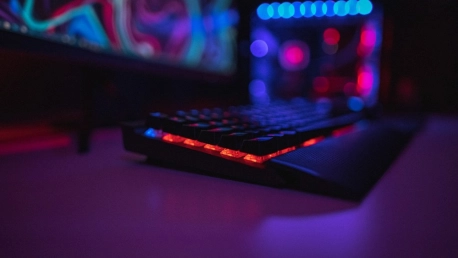In May 2021, Sony’s Artificial Intelligence division (Sony AI) and PlayStation game developers began a collaboration to develop intelligent animated characters that become fully autonomous opponents or game partners. Simultaneously, EA has patented a new game development technology that would fundamentally change the way “artificial intelligence mimics human behavior during gaming sessions.” The AI built into these characters will allow them to learn how to react on trial and error principles and mimic the actions of human players. Such initiatives are not new, but they are becoming representative of the direction in which the video game industry is moving.
Transforming Non-Player Characters
In 2014, Creative Assembly developed Alien: Isolation, a horror game based on the Sci-Fi movie universe of James Cameron and Ridley Scott’s. Alien:Isolation was an instant mega-hit and is still on the list of the best games today. Players were terrified to discover that the main antagonist, the Xenomorph, noticeably changes its behavior depending on the player’s style. The new approach and the player’s transformation from hunter to prey contributed to the game’s success, which sold 2.1 million copies in just a few months.
But it was too early for truly intelligent characters in 2014. Behind the memorable creature in Alien:Isolation is a complex system of parameters that determine its behavior. The game’s developers based the character’s actions on a system of behavior trees, a mathematical model of an execution plan with a limited number of actions, that allows game characters to act according to a decision tree. To make the Xenomorph look like a learning machine, the developers created one of the most complex models, and introduced large amounts of data and parameters into the system. Although its behavior is almost entirely unscripted, the character isn’t really intelligent, just extremely well-programmed.
In recent years, however, machine learning has advanced to the point where it can simplify such a process and allow developers to truly infuse “intelligence” into their characters. Machine learning algorithms give a system or program the ability to learn from experience. AI-powered characters can be “trained” and exposed to various situations, and then be integrated into the game. The need to code the entire behavior of a character would be replaced by the process of “training”. The processing power available on both PCs and gaming consoles is enough to support such a process.
Developing More Exciting Games
AI would not only simplify and speed up the production of games, but also have a direct impact on their quality. Players’ engagement in the games would increase exponentially. For example, AI can create the game’s terrain or the world as the player explores the game area. This could be done based on the feedback it receives from the player’s actions, in-game choices, or tactics.
The AI would also change the behavior of NPCs, creating unique experiences that differ from player to player. Thus, it becomes a sculptor, which develops personalized experiences through AI, based on how the player interacts with the developer’s world.
Technical aspects can also be enhanced, with dynamic environmental elements, such as lighting, wind, and sound, all controlled in real-time by AI to accurately simulate the developer’s vision. This will enable a new dimension of game design, which will bring forth ideas and concepts we cannot even imagine at this time.
Video games are the perfect medium for studying and developing AI. DeepMind, owned by Alphabet since 2014, has been exploring this possibility using the strategy game StarCraft 2. As part of a collaboration between Google and Activision-Blizzard, players of all skill levels had several months in 2019 to compete against Alpha Star (an AI system developed by DeepMind), disguised as one of them. After six months of learning and data feeding, AlphaStar had already achieved the rank of Grand Master in StarCraft 2, shocking the world of professional gamers with its unorthodox decisions and strategies. AlphaStar’s experience was a crucial asset for the DeepMind project. The results have been applied in multiple directions—robotics, autonomous vehicles, and virtual assistants—, demonstrating that games are the perfect medium to study AI, due to the amount and variety of data that can be obtained.
Earlier this year, Sony AI, together with Polyphony Digital Inc (PDI) and Sony Interactive Entertainment (SIE), announced the launch of Gran Turismo Sophy. The racing AI agent is the first superhuman AI entity that can outperform the world’s best drivers in the highly realistic racing simulator, Gran Turismo Sport.
Conclusion
From Pac-Man to Alien:Isolation, game developers have continually improved their methods for simulating the behavior of characters and their worlds. In recent years, studios have invested billions in technology and a new era seems to be upon us. AI and ML algorithms are taking the gaming experience to a new level, becoming the catalyst for creations of unimaginable complexity and realism.
That’s why analysts believe AI will be one of the most important stimulant for the video game industry, which is estimated to reach $583.69 billion in revenue by 2030.









